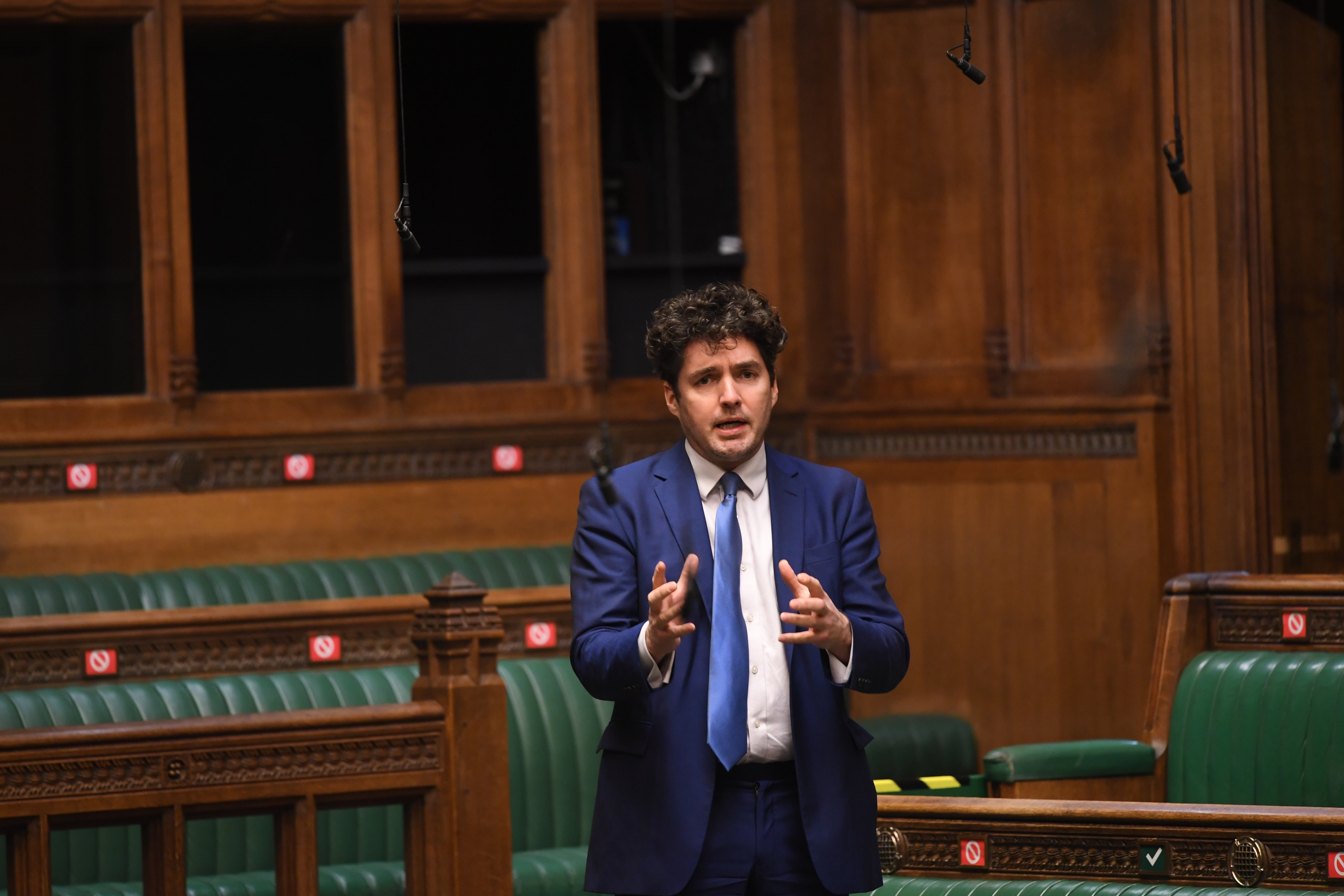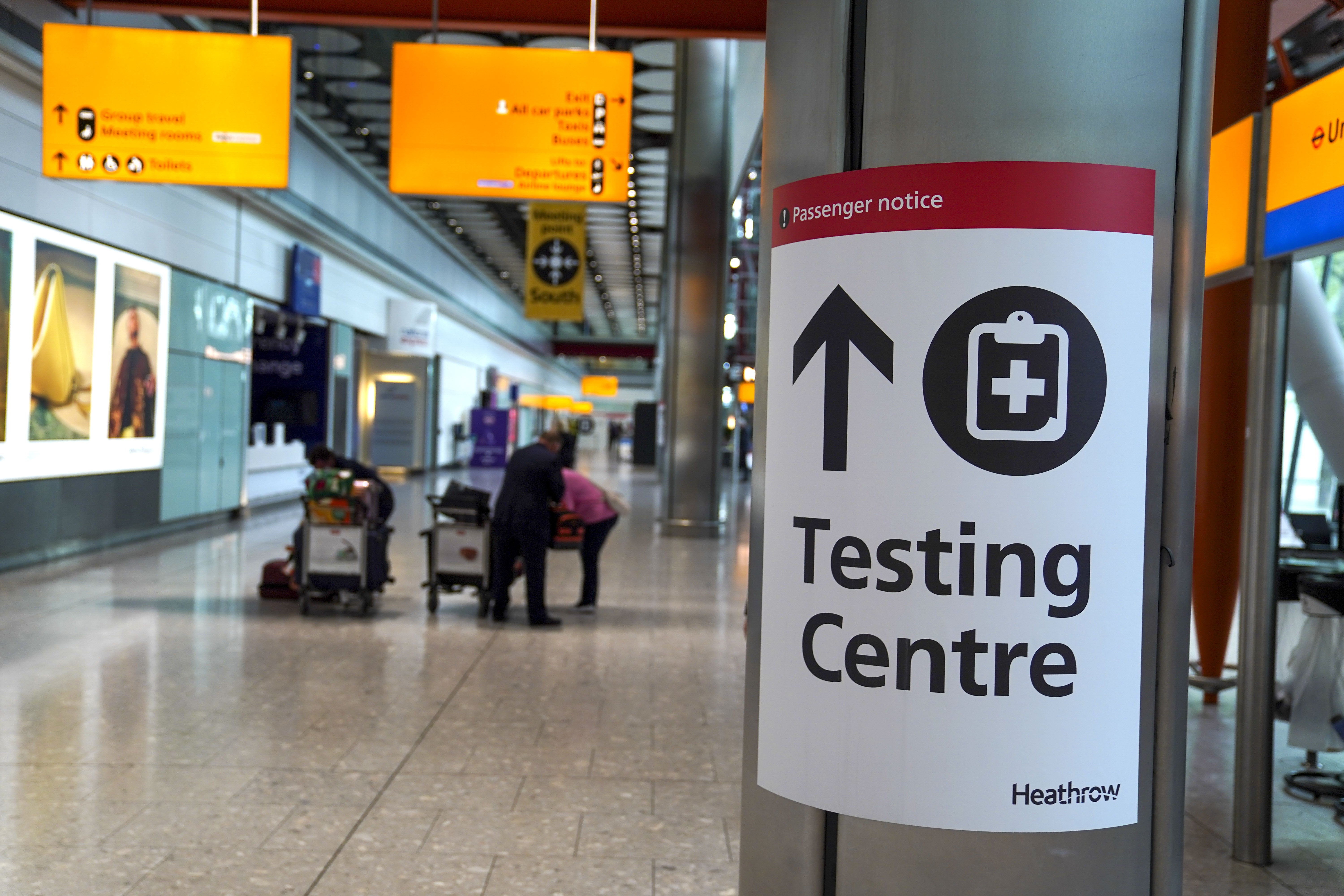
The aviation watchdog should be given stronger powers to protect passengers hit by the kind of international travel disruption seen during the pandemic, MPs have recommended.
The call by the Transport Committee comes after almost two years of disarray for the travel sector during the coronavirus crisis, with quarantine restrictions, testing and locator forms part of efforts to tackle the virus.
In a report published on Monday, UK Aviation: Reform For Take-Off, the Commons committee recommended that the UK Civil Aviation Authority (CAA) should be given “more teeth” to enable the regulator to slap fines on airlines that do not completely refund customers when required to do so by law.
The 55-page document also calls for ministers to publish an aviation recovery plan by June “as a priority” and for an airline insolvency bill to be introduced in the next session of parliament to better protect consumers, employees and taxpayers.
Legislation is urgently needed to give the regulator more teeth to intervene on behalf of consumers and to provide protection from airline insolvencies
The committee welcomed previous assertions by ministers that travel restrictions will only be applied in “extreme circumstances” in future, and said that the Government “must compensate the industry for the economic loss suffered” if measures impacting the sector are reimposed.
Plans to ensure swift Covid testing can be put in place for passengers to travel if required by other countries should also be established, the MPs said.
The report comes after the National Audit Office, in a report published last week, said there had been no system to measure the success of measures such as the traffic light system, self-isolation, testing, quarantine hotels or passenger locator forms.
Huw Merriman, the Conservative chairman of the Transport Committee, said: “In the face of a global pandemic, today’s report acknowledges the difficult position faced by Government.
“However, Government action was inconsistent. It left industry and passengers confused and unable to plan ahead.

“This resulted in a severe economic deficit for the aviation sector. Thousands of people lost their jobs. Many more could not visit their loved ones.
“Now that Government has removed all coronavirus-related restrictions on international travel, ministers must get on with protecting the sector against future economic shocks and reassuring passengers that future restrictions will only be implemented in extreme circumstances.
“Legislation is urgently needed to give the industry more flexibility to recruit new staff for the summer, to give the regulator more teeth to intervene on behalf of consumers and to provide protection from airline insolvencies.”
The report noted that some Ryanair passengers are still waiting, four years after being impacted by a 2018 pilot strike, for compensation due to the company legally challenging CAA enforcement action.
Responding to the MPs’ report, Paul Smith, consumer director at the CAA, said: “We have regularly asked for stronger consumer enforcement powers, including the ability to impose fines on airlines.
“This would allow us to take faster action when appropriate and bring our powers in line with other sectoral regulators.

“Proposals outlined in the government’s recent consultation on enforcement powers, which are supported by the Committee, will – if implemented – improve passenger rights and equip the Civil Aviation Authority with better tools to act swiftly and effectively for the benefit of consumers.”
Consumer group Which? said it also welcomed the call for stronger regulatory powers to protect passengers.
Director of policy and advocacy Rocio Concha said: “If the Government wants to future-proof the aviation sector it must prioritise restoring trust in travel with reforms that deliver for consumers.
“Consumer trust took a battering during the pandemic as some airlines ignored their obligations on refunds and passengers struggled with confusing restrictions and a dysfunctional travel testing system.”
Karen Dee, chief executive of the Airport Operators Association, said the report provided “welcome recognition of the devastating impact the pandemic had on aviation” in the face of “ever-changing” restrictions.
“We join the committee in calling for a comprehensive recovery package that allows our sector to recover sustainably and prevents the UK from falling behind our international competitors,” she said.
A Department for Transport spokesman said: “Our priority was protecting public health and these measures bought vital time for the rollout of our successful booster programme as we responded to new and concerning variants.
“We also ensured they were in place for no longer than absolutely necessary and the UK was the first country in the G7 to remove all travel restrictions.
“In future, the Government’s default approach will be to use the least stringent measures, to minimise the impact on travel as far as possible and these will only be implemented in extreme circumstances.”







